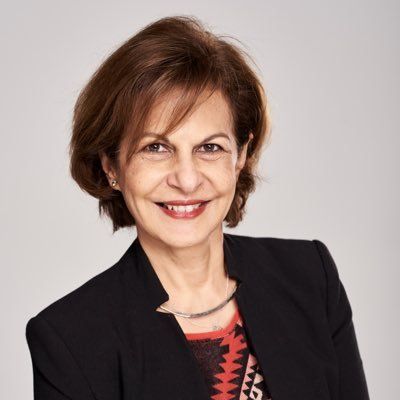To revive dying democracies, focus on ordinary folk, not politicians
Frankly Speaking
Managing Director at New Horizons Project
The fall-out from the US-led military strikes in Syria will keep us busy for days. Ending the seven-year old war and bringing peace to Syria must certainly be high on the global agenda. It also makes it even more vital to urgently tackle the task of reviving dying democracies.
Populists, illiberals, authoritarians, military dictators and once-democratic-leaders-gone-bad litter the landscape, making the world a more dangerous place. The world’s erstwhile most-powerful nation is being run by a man obsessed with Twitter. Other leaders similarly swear and swagger. Policy by sound bites is becoming the norm.
But what’s a person supposed to do? Democracy is about politics. And politics is about politicians. And politicians belong to political parties. So democracy is about political parties and who gets elected, gets the most votes, gets to sit in the parliament, pass laws, look important.
Well, democracy is also about people. It’s about all of us living together, sharing the planet and taking responsibility for it. It’s about active citizenship, rights and obligations, give and take.
Democracy is also about people. It’s about all of us living together, sharing the planet and taking responsibility for it
As the world becomes more tribal and polarised and the political debate more shallow, it’s no surprise that more and more people are getting fed up with politicians, their quarrels and infighting, their tendency to put party above nation. Their neglect of citizens’ interest. Their corruption, moral and/or pecuniary. Their dominance, their negligence and their egos.
And while everyone’s attention tends to centre on those who follow and vote for the hate-mongers and bigots, there is also another, more heartening global story. It’s about “ordinary” people taking matters into their own hands to work for the common public good. They are doing so through individual initiatives, local action, national movements and global campaigns.
Look carefully: while politicians argue and squabble, it’s the ordinary folk who are shaping and reshaping the world. Whether it’s trying to stop massacres or shelter refugees, cracking down on crime and guns, cleaning up parks and street corners, demanding safe food or fighting for equal opportunities, it’s the story of people, joining forces, putting aside their differences to tackle shared challenges.
Young Americans are taking to the streets to urge an end to gun violence, anti-Brexiteers are actively working to stop Brexit, Hungarians are protesting the policies and actions of Viktor Orbán and many Israelis are calling for peace with Palestinians. Their actions are getting bigger, stronger and more ambitious.
These moves very rarely make the headlines and if they do, they are quickly replaced by more virulent and toxic voices, those who see the world as an unending competition. The nasties make the headlines and actively troll their adversaries on social media. Hate and prejudice gets global attention. But the reality of today’s world is not just about those who insult and offend. It is also about constructive connectivity, of people putting aside their differences and grievances to join hands in the hope of making positive change.
Look carefully: while politicians argue and squabble, it’s the ordinary folk who are shaping and reshaping the world
Like En Marche in France, some movements do have leaders. But mostly these movements are amorphous, messy, volatile and leaderless. Some are short-lived, others live on.
Certainly spontaneous grassroot movements cannot replace well-organised political parties. They are vitally needed, however, to build and maintain open and inclusive societies, to keep politicians on their toes, to name and shame, keep politics more or less clean and drive constructive change. Sometimes their voices are drowned out by harsher clamour. Sometimes ‒ like the #MeToo movement ‒ they can transform old behaviours.
Like authentic and independent journalism, people-led political and social campaigns are vitally important for the survival of democracy. Little surprise then, as in Hungary, Poland, Turkey and Russia, media crackdowns and demonisation of civil society organisations are the unpleasant hallmark of autocrats and illiberals.
As it navigates increasingly treacherous waters, the EU can no longer rely on political parties to push for freedom and democracy, whether at home or abroad. As illustrated by the European People’s Party’s (EPP) leniency towards Orbán, the US Republican Party’s failure to rein in Trump, the party political debates over Brexit or indeed the failure to find a negotiated solution for Catalonia, politicians can no longer be relied on to think first of the public or national interest.
The EU can no longer rely on political parties to push for freedom and democracy
If the EU is serious about the renewal of democracy both in Europe and globally, it must engage more forcefully with non-state actors, including local and regional authorities, business leaders, labour unions and students, women’s groups and representatives of ethnic and religious minorities.
These discussions can no longer be a mere ritual, an after-thought or an obligation. Financial and moral support for pro-democracy groups, both at home and abroad, should be redoubled. Whether at home or outside, European Commissioners and members of the European Parliament must step outside their rarefied bubbles and engage, engage, engage with the demos.
Speeches and brief appearances at conferences and conventions are no longer enough. With elections to the European Parliament around the corner, it’s more and more urgent to change the EU’s rules of public engagement. It’s time to get personal and make emotional connections.
Yes, people are being seduced by populists across the world. But many more are working courageously to stop the global slide into despair. They deserve our support and attention.
Stay informed
